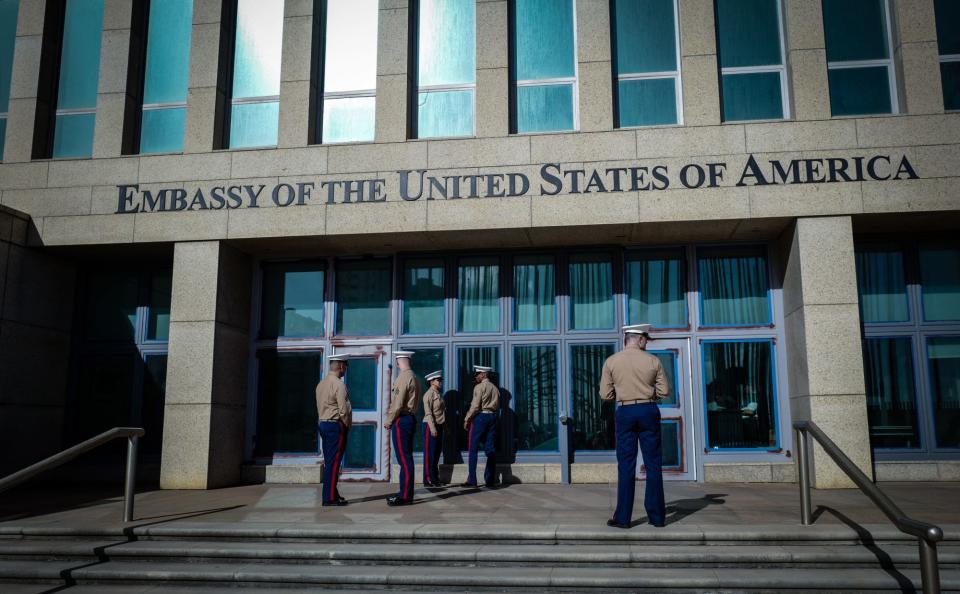Study finds changes in Cuban diplomats' brains, but no sign of attack
There's still a lot of uncertainty, including the new findings.
Scientists are still unsure of why a group of US diplomats in Cuba experienced mysterious neurological symptoms, but they're still looking for answers. A new study published today in JAMA by the University of Pennsylvania reveals that brain changes were found in US government officials who were stationed in Havana. But there's still no proof to the theory that the diplomats were attacked by a sonic weapon.
The study performed advanced brain imaging on 40 government personnel who were stationed in Cuba. A group of 48 healthy patients were used as a control. Compared to the control group, the brains of the Cuba patients showed distinct differences in brain volume and connectivity. There was reduced white matter in the affected patients. Changes in tissue volume particularly impacted the cerebellum -- the region of the brain responsible for executive functioning.
"The areas implicated in the patients' brains, namely the cerebellum as well as the visuospatial and auditory networks, align with the neurological symptoms that were observed in the patients," said lead author Ragini Verma, PhD, professor of radiology and head of the imaging lab at the University of Pennsylvania. Verma said the changes were evident even after scientists excluded the results of patients with a history of brain injuries.
Still, outside scientists cast doubt on the study; arguing that its techniques are far from iron-clad. First off, the imaging methods used on the patients aren't meant to find disease, neuroscientist Douglas Fields told Gizmodo. In an editor's note, JAMA senior editor Christopher Muth and executive editor Phil Fontanarosa admitted that the paper didn't provide clear proof of impairment. "However, despite the differences in advanced neuroimaging metrics between patients and controls reported in this study, the clinical relevance of these differences is uncertain, and the exact nature of any potential exposure and the underlying etiology of the patients' symptoms still remain unclear," they wrote.
The study is a follow-up to a smaller trial the team performed back in 2016 with a group of 20 diplomats, which concluded that there were signs of neurological injury. That work was met with some backlash from the rest of the scientific community. Three years later, it appears that the mystery of Havana Syndrome still hasn't been solved. But given how tricky investigating the phenomenon has been for scientists, it's probably best for the average person to avoid jumping to unlikely conclusions.



